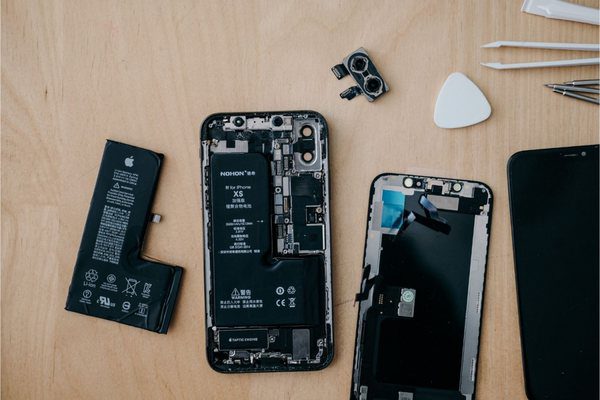
High cholesterolemia Dubai refers to the condition of having high levels of cholesterol in the blood, which can increase the risk of heart disease, stroke, and other cardiovascular issues. Managing high cholesterol is crucial for maintaining overall health, and recent advancements in treatments have provided patients with more effective options. In this article, we’ll explore the latest treatments for high cholesterolemia Dubai, including new medications, lifestyle changes, and technologies. Additionally, we will discuss the cost of treatments, before and after results, and answer some frequently asked questions.
What is High Cholesterolemia?
High cholesterolemia Dubai is a condition where there are elevated levels of cholesterol in the bloodstream. Cholesterol is a waxy substance produced by the liver and found in certain foods. While cholesterol is necessary for building cells, too much of it can cause fatty deposits to build up in blood vessels, leading to blockages that increase the risk of heart disease and stroke. There are two main types of cholesterol:
- Low-density lipoprotein (LDL), also known as “bad” cholesterol, which can build up in the arteries.
- High-density lipoprotein (HDL), known as “good” cholesterol, which helps remove LDL cholesterol from the bloodstream.
Latest Treatments for High Cholesterolemia in Dubai
With advancements in medical science, there are several effective treatments for high cholesterolemia Dubai, which can be tailored to individual needs. These treatments include medications, lifestyle changes, and innovative therapies. Here are some of the most up-to-date options:
1. Statins
Statins remain the first-line treatment for managing high cholesterolemia Dubai. These medications work by blocking the liver’s ability to produce cholesterol. As a result, statins can significantly lower LDL cholesterol levels and reduce the risk of heart disease.
- Popular Statins: Atorvastatin, Rosuvastatin, and Simvastatin.
- Benefits: Statins have been shown to reduce heart attack and stroke risk, and they are widely used for long-term cholesterol management.
2. PCSK9 Inhibitors
A newer class of medications known as PCSK9 inhibitors has shown great promise in treating high cholesterolemia Dubai. These injectable medications lower LDL cholesterol by inhibiting the protein PCSK9, which prevents the liver from removing cholesterol from the blood.
- Common Brands: Alirocumab (Praluent) and Evolocumab (Repatha).
- Benefits: PCSK9 inhibitors are particularly effective for individuals with familial hypercholesterolemia (a genetic condition causing very high cholesterol) or those who do not respond well to statins.
3. Ezetimibe
Ezetimibe is a medication that works by reducing the amount of cholesterol absorbed by the intestines. It is often prescribed in combination with statins for patients who require additional cholesterol-lowering effects.
- Benefits: Ezetimibe can effectively lower LDL cholesterol levels and is often well-tolerated with minimal side effects.
4. Bempedoic Acid
Bempedoic acid is a newer oral medication that helps lower cholesterol by inhibiting an enzyme involved in cholesterol production. It is typically prescribed for patients who cannot tolerate statins or need an additional cholesterol-lowering treatment.
- Benefits: It can be used in combination with statins or as a standalone therapy for patients with high cholesterol levels.
5. Lifestyle Modifications
Along with medications, lifestyle changes remain a cornerstone of high cholesterolemia Dubai management. These changes include:
- Dietary Changes: Eating a diet rich in fruits, vegetables, whole grains, and healthy fats (like omega-3 fatty acids) can help lower cholesterol levels. Limiting saturated fats, trans fats, and cholesterol-rich foods is essential.
- Physical Activity: Regular exercise, such as walking, running, and cycling, helps raise HDL cholesterol and lower LDL cholesterol.
- Weight Loss: Achieving and maintaining a healthy weight can significantly reduce cholesterol levels and lower the risk of cardiovascular diseases.
6. Lipid-Apheresis
For patients with very high cholesterol levels that do not respond well to medications or lifestyle changes, lipid-apheresis is an emerging treatment. This procedure involves filtering the blood to remove excess cholesterol, similar to dialysis, and is typically used for severe cases of familial hypercholesterolemia.
- Benefits: Lipid-aferesis can significantly lower LDL cholesterol levels, especially in individuals who do not respond to conventional therapies.
The Cost of Treating High Cholesterolemia in Dubai
The cost of managing high cholesterolemia Dubai can vary depending on the treatment options and duration. Here is a breakdown of the potential costs:
1. Statins and Other Oral Medications
- Cost: Statins and medications like ezetimibe and bempedoic acid are relatively affordable, with monthly costs typically ranging from AED 150 to AED 500 depending on the medication and dosage.
2. PCSK9 Inhibitors
- Cost: PCSK9 inhibitors can be quite expensive, often ranging between AED 2,000 to AED 5,000 per month due to their novel nature and effectiveness. Some insurance plans may cover these costs, especially for patients with high-risk conditions.
3. Lipid-Apheresis
- Cost: Lipid-apheresis is a more expensive procedure, with each session costing between AED 4,000 to AED 10,000. Patients may need multiple sessions over time.
4. Consultation and Monitoring
- Cost: Regular check-ups and monitoring of cholesterol levels can cost between AED 300 to AED 1,000 per visit, depending on the clinic and tests required.
Before and After Results
Before starting treatment for high cholesterolemia Dubai, your doctor will assess your cholesterol levels and discuss the best treatment options for you. After starting the appropriate therapy, you can expect the following results:
- Before Treatment: High cholesterol levels, usually above 200 mg/dL for total cholesterol, with elevated LDL cholesterol and low HDL cholesterol.
- After Treatment: A significant reduction in LDL cholesterol, an increase in HDL cholesterol, and a lower overall risk of cardiovascular disease. Patients may experience improved heart health, fewer blockages in blood vessels, and reduced risk of heart attacks or strokes.
5 Frequently Asked Questions (FAQs) About High Cholesterolemia in Dubai
1. What are the primary causes of high cholesterol?
The primary causes of high cholesterolemia Dubai include poor diet, lack of exercise, smoking, genetics, and underlying health conditions such as diabetes or high blood pressure.
2. Can high cholesterol be completely cured?
While high cholesterolemia Dubai can be managed effectively through medications, lifestyle changes, and regular monitoring, it is not always completely curable. Long-term management is essential.
3. How often should I check my cholesterol levels?
It’s recommended to check cholesterol levels at least once every 4-6 years for adults. However, individuals with high cholesterol or a family history of heart disease may need more frequent monitoring.
4. Can lifestyle changes reduce cholesterol without medication?
Yes, adopting a healthy diet, increasing physical activity, and losing excess weight can help lower cholesterol levels. However, some individuals may still require medication for optimal control.
5. Are there side effects to cholesterol medications?
While most cholesterol medications are well-tolerated, some individuals may experience side effects like muscle pain, digestive issues, or liver problems. It’s important to discuss potential side effects with your doctor.
Conclusion
The treatment of high cholesterolemia Dubai has come a long way with new medications and therapies offering more options for managing this condition. Whether through traditional medications like statins, newer treatments like PCSK9 inhibitors, or advanced procedures like lipid-apheresis, individuals in Dubai have access to effective treatments for managing cholesterol levels and reducing the risk of cardiovascular diseases. It’s essential to work closely with your healthcare provider to determine the best treatment plan for your individual needs, considering both the benefits and potential costs of each option.







